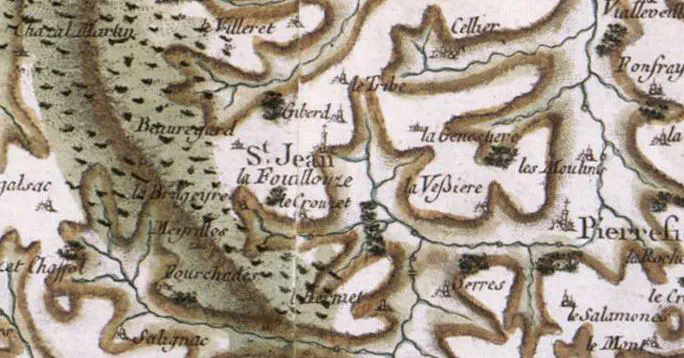Voices of the past
On the last native speakers of Occitan

My deepest linguistic regret is that I can’t understand (let alone speak) my grandfather’s native language: Gevaudanese1 Occitan. My second deepest linguistic regret is I wish I had recorded a whole speech database with data from the last native speakers of this language variety.
When I was growing up, you could still hear whole spontaneous conversations in Occitan among older (rural, male) speakers in my native Margeride2. This is no longer the case. One of my uncles, a 70-year old fluent speaker of Occitan, tells me that whenever he starts a conversation in this idiom with people he knows are proficient speakers, they quickly switch back to French. My grandmother, who is 90, understands Gevaudanese Occitan perfectly, but she’s never really spoken it (because it was strongly discouraged at school). Her productions are limited to the occasional proverb. My 20-year-old cousin took optional (standard) Occitan classes for the baccalauréat 2 years ago… but this is a whole different variety.
The type of Occitan I was used to hearing when I was a child was, so to speak, more colourful. It was spoken loud, with huge intonational variations and tempo modulations.
Fortunately, I was lucky enough to record one of the very last native speakers of this variety in 2003. Louis, then 81 years old, was a very good friend of my grandfather’s (who had passed away a couple of years earlier), and he kindly agreed to participate in an informal interview. For the anecdote, he spoke to me as if I understood what he was saying, and I remember paying close attention to his intonational contours to spot key moments where I should nod or laugh.
So here are two short excerpts from this recording, with a rough English translation.
- Excerpt 1:
And do you know what the little imp did to us? He taught us to smoke! When we went to religious classes, the tobacconist’s was about 300 meters away. He could buy tobacco because he had more money than the others, it was a big estate. We did not have much money. We would buy tobacco and smoke cigarettes. And we had to smoke them before we arrived [because] if the priest had seen us eight-year olds [smoke], you can understand that he would have been mad at us3.
- Excerpt 2:
Emmanuel, Emmanuel4… he would talk and talk and never leave. And once we went to get cows from a bloke who had worked with him. He wanted to offer us something to eat; it was 11 o’clock. They were eating. I felt like eating something but Emmanuel said we had already had dinner5. And when we left I told him: “You didn’t have to… you’ve already had dinner but I have not, I would have loved to eat something!”
Gévaudan is an old French province mainly known to outsiders through the “beast” that attacked and killed dozens of people in the 2nd half of the 18th century. The boundaries of present-day Lozère partially match those of the historical province. ↩︎
A moutainous region, part of which is located within Gévaudan. ↩︎
Literaly: *we would have been gone after dirtily. ↩︎
Refers to my grandfather, not me. ↩︎
The original passage only has the verb “to eat”; I assumed it was dinner time (11:00 + being hungry) but lunch time is almost equally likely given that cattle traders wake up in the middle of the night to go to the market and therefore may have a proper meal before noon. ↩︎